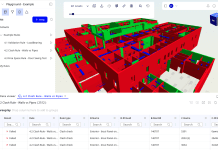Whilst trade agreements have wreaked havoc on getting construction supplies to project sites globally, large projects closer to home in the UK have caused even more commodification once supplies are available
Comparing January-May this year to the same period in 2020, the costs associated with materials and projects have risen by 8%. In short, materials are becoming notoriously hard to get hold of, and notoriously expensive if you do manage to track them down.
Is this the case for construction to become leaner and smarter with its materials?
Fallout from Brexit
The United Kingdom’s exit from the European Union has had a huge impact on the construction supply chain. From delayed shipments to new, unfamiliar regulations, construction materials are becoming increasingly difficult to source overseas.
One of the main culprits is the creation of a new UK certification mark, UKCA to replace the European CE mark. The new UKCA mark is expected to become mandatory for any goods coming being used in the UK from 1 January 2022.
However, as Financial Times states, there are “just 45 UK testing houses that can provide certification, versus around 700 in Europe, with almost no capacity for specialist products such as some glass and adhesives.”
Example: HS2 project
The size and complexity of a project like the UK’s HS2 project — construction of a second high-speed rail network connecting more cities (the first leg of which is already under construction between London and Birmingham) — means that it can cause a spike in demand for certain materials that can affect the whole country.
Hudson Contract thinks that it is one of the main causes of materials shortages, stating recently that, “In the West Midlands, some are saying their projects are now on ‘tick over’ because materials are being creamed off by HS2”
It is also worth noting that the West Midlands appears to be especially pushed due to its increase in new-build housing and the 2022 Commonwealth Games infrastructure project.
Running a leaner construction operation
Material waste is a costly issue that contractors have already struggled to control, but now it is becoming increasingly critical for projects to be as efficient as possible in how they use their materials.
There can be no room for errors when there is no longer a surplus of materials waiting in the wings. In a way, this could force the construction industry to become more eco-friendly and conscious of what it is wasting. It could also be an opportunity to invest in more stringent project quality controls, and a prioritising this throughout a project’s lifecycle.
This means training staff regularly, both refresher courses and new courses, in order to reduce costly errors and rework. Another approach is the adoption of modern project control technologies and mobile applications on site. These solutions leverage the cloud and connected workflow s to deliver real-time data and decision-making abilities, further mitigating traditional construction project risks and material waste.
Viewpoint delivers real-time project oversight
One of these technologies is Viewpoint Field View, a cloud-based mobile solution which helps contractors across the UK replace pen and paper in the field and streamline quality, safety, project delivery, and closeout/commissioning processes. This means your business can start streamlining how it delivers projects and deliver more with less.
We can’t stop the materials shortage, but the right tools in place mean that you can start increasing quality, accountability, and transparency throughout your projects in order to successfully navigate through it… Scaling your business with modern technologies puts you in the driver’s seat to better manage change and project risks as they arise. And, you’ll likely boost your productivity and profitability in the process.






![[Video] Fireco: 80 new fire doors required for residential flats in London](https://www.pbctoday.co.uk/news/wp-content/uploads/2025/04/2024-06-01-Lords-view-one_1200x750_004-218x150.webp)







